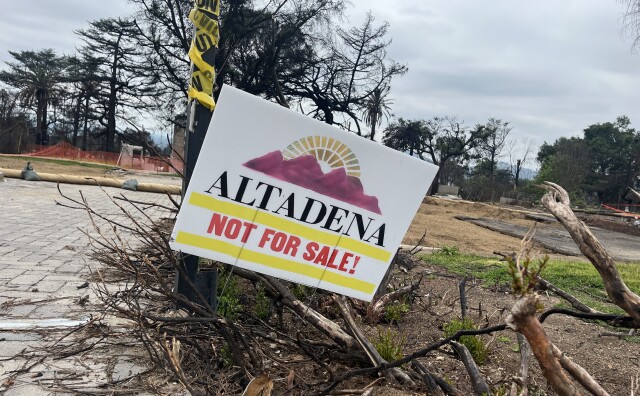With our free press under threat and federal funding for public media gone, your support matters more than ever. Help keep the LAist newsroom strong, become a monthly member or increase your support today.
Alpine Village Is Now An Official Landmark, Not Just A Landmark In Our Hearts

Earlier this week, Tuesday to be precise, the Los Angeles County Board of Supervisors voted unanimously to designate Alpine Village, a Bavarian-themed shopping and dining complex, a historical landmark.
The designation protects the property from major alterations and potential demolition but it does not include the interiors of the buildings, according to Rosalind Sagara with the L.A. Conservancy. The owner reportedly did not oppose the designation.
Located in unincorporated West Carson, what Hadley Meares described as a "picturesque, slightly run-down hamlet of European-style chalets next to the roaring Harbor Freeway," opened in 1969. It boasted the Alpine Inn Restaurant, a movie theater, a soccer field and a bunch of quaint, Alpine-themed specialty shops offering everything from pancakes and ski gear to blown glass andGerman sausages.
The kitschy, approximately 14-acre complex, hosted weekly swap meets, bingo nights and, for several years, a popular annual Oktoberfest celebration.
But over the years, Southern California residents lost interest. Many shops and eateries closed and it looked down-at-the-heels. In April, the restaurant that anchored Alpine Village announced it was going to close.
Last year, reports surfaced that a Long Beach-based real estate company wanted to purchase Alpine Village, tear down most of it and turn it into a storage center. The perceived threat of destruction made preservationists take notice and they launched a drive to name the complex as a historic landmark.
Sagara told us:
"Especially for German-Americans in Southern California but also a lot of other groups, many of which held annual festivals and events and over the years. It's also served as a meeting place for more than 30 social and cultural clubs."
Our news is free on LAist. To make sure you get our coverage: Sign up for our daily newsletters. To support our non-profit public service journalism: Donate Now.
At LAist, we believe in journalism without censorship and the right of a free press to speak truth to those in power. Our hard-hitting watchdog reporting on local government, climate, and the ongoing housing and homelessness crisis is trustworthy, independent and freely accessible to everyone thanks to the support of readers like you.
But the game has changed: Congress voted to eliminate funding for public media across the country. Here at LAist that means a loss of $1.7 million in our budget every year. We want to assure you that despite growing threats to free press and free speech, LAist will remain a voice you know and trust. Speaking frankly, the amount of reader support we receive will help determine how strong of a newsroom we are going forward to cover the important news in our community.
We’re asking you to stand up for independent reporting that will not be silenced. With more individuals like you supporting this public service, we can continue to provide essential coverage for Southern Californians that you can’t find anywhere else. Become a monthly member today to help sustain this mission.
Thank you for your generous support and belief in the value of independent news.

-
The Palisades Fire erupted on Jan. 7 and went on to kill 12 people and destroy more than 6,800 homes and buildings.
-
People moving to Los Angeles are regularly baffled by the region’s refrigerator-less apartments. They’ll soon be a thing of the past.
-
Experts say students shouldn't readily forgo federal aid. But a California-only program may be a good alternative in some cases.
-
Distrito Catorce’s Guillermo Piñon says the team no longer reflects his community. A new mural will honor local leaders instead.
-
The program is for customers in communities that may not be able to afford turf removal or water-saving upgrades.
-
More than half of sales through September have been to corporate developers. Grassroots community efforts continue to work to combat the trend.







